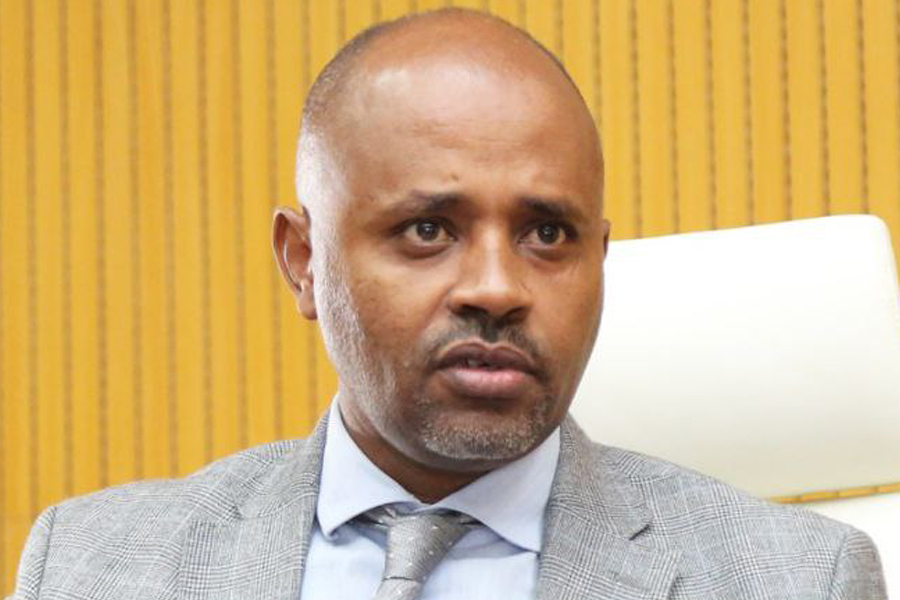
Fortune News | Aug 25,2024
Oct 22 , 2022
By ASSEGED GEBRMEDIHN
It has been almost a decade since policymakers and governors aspired to change the Ethiopian financial sector.
The Prosperitians are eager to change the livelihood of Ethiopians at a macroeconomic level. The National Bank of Ethiopia (NBE) has developed a strategy and product that will change the financial landscape through its principal organs, the banking and insurance supervision. That is the economists’ view of core competency, a competitive advantage strategy.
Much of Ethiopia’s resources are with the regional states. Whether to focus on the agricultural sector is a challenging economic view for the central bank Governor and experts in the area to bring what we currently observe. I strongly support these changes since financial inclusion holds a more extensive account than commercial banking. That is what competitive advantage means.
Regional resources are fundamental for economic development if embraced in today’s financial technology, a.k.a Fintechaziation. It is the convergence of finance and technology through telecom services expansion.
The Prosperitians assumed that the economy would be shaped and remains sustainable, investing in vanity projects. Regardless of the turnover, with a bizarre gap in bank deposit returns, investing in the agricultural sector and consuming much of the nation’s resources is far better than the inflationary economy.
According to World Bank’s recent surveys on the global inflation rate, prices for foodstuffs across the world have increased by more than 50pc. This should prompt a grounded strategy for countries like Ethiopia, endowed with a conducive climate to productive land and livestock population, to strive in the economy.
Recognising the status quo, the central bank has crafted proclamations to stir the competitive advantage of the financial sector.
The scarcity of hard currency to facilitate financial inclusion and economic strategies is not a policy issue. It is of the expansion in the illicit trade of forex and increasing players in the parallel market.
Ethiopia’s livestock population is the largest in Africa, with an agrarian human population that ranks second in the continent. Yet, local and imported food items are beyond the affordable market price, which economic or marketing models could not explain.
The answer lies in financial inclusion. The more finance the producer receives, the greater the agricultural production to satisfy local demands at reasonable prices.
As urban farming becomes inclusive in finance, the produce can flood districts and villages. The more we allocate finance for innovations and cottage industries, the more service and commercial activities would be uplifted and ultimately reduce the cost of intermediaries. Once we settle on a suitable financial inclusion model, digitalising them further eases the process.
A group of countries known as G20 and the World Bank have led the initiative since 2010 for increased financial inclusion in developing countries to help reduce poverty. The relevance of digital finance and financial inclusion for poverty reduction and economic growth is attracting the attention of policymakers and academics. If addressed correctly, digital finance and inclusion can benefit individuals, businesses, governments and the economy by increasing access to financial services among the poor. It can also reduce the cost of financial intermediation for banks and fintech providers, increasing aggregate expenditure for governments.
In Ethiopia’s case, almost 95pc of financial services suppliers are concentrated in the capital city. The massive cost of finance or interest is imposed on the shoulders of the customer, whose money is in the custody of financers, such as bankers, microfinance institutions and insurers. Even before opening up to foreign capital, the trend is challenging because the inflationary economy’s return on deposits is meaningless.
Despite its benefits, digital finance and financial inclusion have not permeated vast segments of the population, which suggests an existing gap between the availability of finance, accessibility and use. One area where the disparity is pervasive and receiving attention among fintech providers. They can promote economic growth in a stable economy, increasing the volume of financial transactions in the system.
However, it is unknown whether fintech providers and their activities can exacerbate economic crises during unstable times.
In the World Bank’s view, financial inclusion is an effective solution for poverty reduction in developing and poverty-stricken countries. Insights from such a premise can provide policymakers with an understanding of issues associated with the rapid development of digital financial services, its delivery to the underprivileged and the risks involved.
Once insurers estimate microeconomic activities, the finance supply falls in the hands of financiers. Yet, the Ethiopian system is different, taking 85pc depositors’ money and providing less than five percent through layers of bureaucracies. Such practice will not have a place these days as depositors and policymakers urge reform.
PUBLISHED ON
Oct 22,2022 [ VOL
23 , NO
1173]


Fortune News | Aug 25,2024

Radar | Jan 21,2023

Fortune News | Jul 24,2021

Viewpoints | May 31,2025

Commentaries | Sep 18,2021

Commentaries | Apr 30,2021

Commentaries | Jul 05,2025

Radar | Sep 14,2024

Radar | Feb 10,2024

Fortune News | Sep 22,2024

Photo Gallery | 179544 Views | May 06,2019

Photo Gallery | 169741 Views | Apr 26,2019

Photo Gallery | 160671 Views | Oct 06,2021

My Opinion | 137188 Views | Aug 14,2021
Commentaries | Oct 25,2025

Dec 22 , 2024 . By TIZITA SHEWAFERAW
Charged with transforming colossal state-owned enterprises into modern and competitiv...

Aug 18 , 2024 . By AKSAH ITALO
Although predictable Yonas Zerihun's job in the ride-hailing service is not immune to...

Jul 28 , 2024 . By TIZITA SHEWAFERAW
Unhabitual, perhaps too many, Samuel Gebreyohannes, 38, used to occasionally enjoy a couple of beers at breakfast. However, he recently swit...

Jul 13 , 2024 . By AKSAH ITALO
Investors who rely on tractors, trucks, and field vehicles for commuting, transporting commodities, and f...

Oct 25 , 2025
The regulatory machinery is on overdrive. In only two years, no fewer than 35 new pro...

Oct 18 , 2025
The political establishment, notably the ruling party and its top brass, has become p...

Oct 11 , 2025
Ladislas Farago, a roving Associated Press (AP) correspondent, arrived in Ethiopia in...

Oct 4 , 2025
Eyob Tekalegn (PhD) had been in the Governor's chair for only weeks when, on Septembe...

Oct 25 , 2025 . By YITBAREK GETACHEW
Officials of the Addis Abeba's Education Bureau have embarked on an ambitious experim...

Oct 26 , 2025 . By YITBAREK GETACHEW
The federal government is making a landmark shift in its investment incentive regime...

Oct 29 , 2025 . By NAHOM AYELE
The National Bank of Ethiopia (NBE) is preparing to issue a directive that will funda...

Oct 26 , 2025 . By SURAFEL MULUGETA
A community of booksellers shadowing the Ethiopian National Theatre has been jolted b...